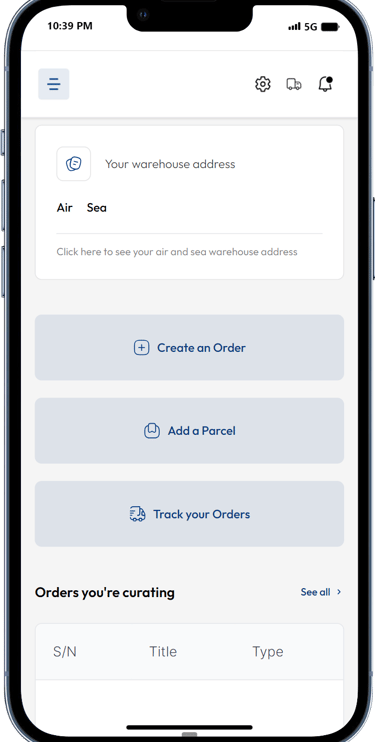Measuring Supply Chain Performance for African Micro Businesses
African micro-business can benefit from measuring performance with simple supply chain tracking tools. From spreadsheets to advanced analytics, the simpler the tool, the better
7/28/20244 min read
African micro-businesses operate in a complex and dynamic environment where traditional supply chain metrics might not paint the full picture. Factors such as infrastructure, economic volatility, and limited resources present unique challenges. To thrive, these businesses must adopt tailored performance measurement strategies that directly impact customer satisfaction.
The African Micro-Business Landscape
African micro-businesses often operate on razor-thin margins, juggling multiple roles, and facing constant uncertainties. Their supply chains are typically informal, relying on personal relationships and local networks. This makes performance measurement a daunting task. However, it's crucial for identifying areas for improvement and ensuring customer satisfaction.
Key Performance Indicators (KPIs) for African Micro-Businesses
While traditional KPIs like on-time delivery and order accuracy are relevant, African micro-businesses should focus on metrics that reflect their specific challenges and impact on customers.
Customer Satisfaction: This is the ultimate measure of supply chain performance. Surveys, feedback, and repeat business can gauge customer happiness.
Inventory Turnover Ratio: Given limited storage space and capital, efficient inventory management is crucial. This metric measures how quickly inventory is sold.
Supplier Reliability: Assessing supplier performance based on delivery time, product quality, and payment terms is essential.
Cost Per Unit: Tracking the cost of acquiring and delivering products helps identify areas for cost reduction.
Cash Conversion Cycle: This metric measures the time it takes to convert inventory into cash, highlighting cash flow efficiency
Essential Tools for Tracking Performance in African Micro-Businesses
African micro-businesses, often operating with limited resources and infrastructure, require practical, affordable tools to manage their supply chains effectively. Let's delve into the tools mentioned:
Spreadsheets
Spreadsheets remain the most accessible and versatile tool for small businesses in Africa. Their flexibility allows for customization to suit various tracking needs.
Use Cases for African Micro-Businesses:
Inventory management: Track stock levels, reorder points, and product turnover. For instance, a small grocery store can use a spreadsheet to monitor the quantity of each product, set minimum stock levels, and calculate inventory turnover.
Sales and revenue tracking: Record daily or weekly sales, calculate total revenue, and identify best-selling products. A street vendor can use a spreadsheet to record daily sales, calculate total income, and determine which products are most profitable.
Expense management: Track purchases, rent, utilities, and other expenses to monitor cash flow. A small tailor can use a spreadsheet to record fabric purchases, labor costs, and other expenses to calculate profit margins.
Example Spreadsheets:
Google Sheets: Offers free cloud-based functionality, allowing for collaboration and access from any device.
Microsoft Excel: Widely used with robust features for data analysis and visualization.
Mobile Apps
Mobile apps offer affordable and accessible solutions for micro-businesses, especially in regions with limited internet connectivity.
Use Cases for African Micro-Businesses:
Inventory management: Scan product barcodes, track stock levels, and generate reorder alerts. A small electronics retailer can use an inventory management app to monitor product availability and prevent stockouts.
Order management: Process orders, track deliveries, and manage customer information. A food delivery service can use an order management app to assign orders to drivers and track delivery status.
Financial management: Create invoices, track payments, and manage expenses. A hair salon can use a financial management app to send invoices to clients and monitor cash flow.
Example Mobile Apps:
Zoho Inventory: Offers inventory management, purchase order creation, and barcode scanning features.
QuickBooks Mobile: Provides basic accounting and invoicing functionalities.
Accounting Software
While often perceived as expensive, cloud-based accounting software offers cost-effective solutions for micro-businesses.
Use Cases for African Micro-Businesses:
Financial reporting: Generate income statements, balance sheets, and cash flow statements. A small restaurant can use accounting software to track sales, expenses, and profitability.
Inventory valuation: Calculate inventory value for accurate financial reporting. A clothing store can use accounting software to value inventory and determine the cost of goods sold.
Tax compliance: Manage tax records and generate tax reports. A small hardware store can use accounting software to track sales tax and prepare tax returns.
Example Accounting Software:
Wave Accounting: Offers free plans for basic accounting features.
Xero: Cloud-based accounting software with a user-friendly interface.
Customer Relationship Management (CRM) Software:
While primarily used by larger businesses, basic CRM functionalities can benefit micro-businesses.
Use Cases for African Micro-Businesses:
Customer contact management: Store customer information, contact history, and preferences. A beauty salon can use CRM to manage customer appointments and track product preferences.
Sales tracking: Monitor sales performance, identify top customers, and analyze sales trends. A small electronics retailer can use CRM to track sales by product category and customer segment.
Customer feedback: Collect and analyze customer feedback to improve products and services. A local tailor can use CRM to gather customer opinions on fabric choices and designs.
Example CRM Software:
HubSpot CRM: Offers a free plan with basic CRM features.
Zoho CRM: Provides a range of features for sales, marketing, and customer support.
Spend Analytics: Optimizing Purchases
Tools like Proc360's procurement spend analytics can provide valuable insights for micro-businesses seeking to optimize their purchasing decisions.
Use Cases for African Micro-Businesses:
Spend analysis: Identify spending patterns, identify cost-saving opportunities, and negotiate better deals with suppliers. A small grocery store can use spend analytics to analyze purchasing trends and negotiate discounts with suppliers.
Supplier performance evaluation: Assess supplier reliability, delivery time, and product quality. A small electronics retailer can use spend analytics to evaluate supplier performance and choose the best partners.
Cash flow management: Optimize payment terms and improve cash flow. A small construction company can use spend analytics to negotiate better payment terms with suppliers and improve cash flow.
Example Procurement Spend Analytics Tools:
Proc360: Offers procurement spend analytics tailored for micro and small businesses in Africa.
SpendHQ: Provides cloud-based spend management solutions.
By effectively utilizing these tools, African micro-businesses can gain valuable insights into their operations, make data-driven decisions, and improve overall performance.


